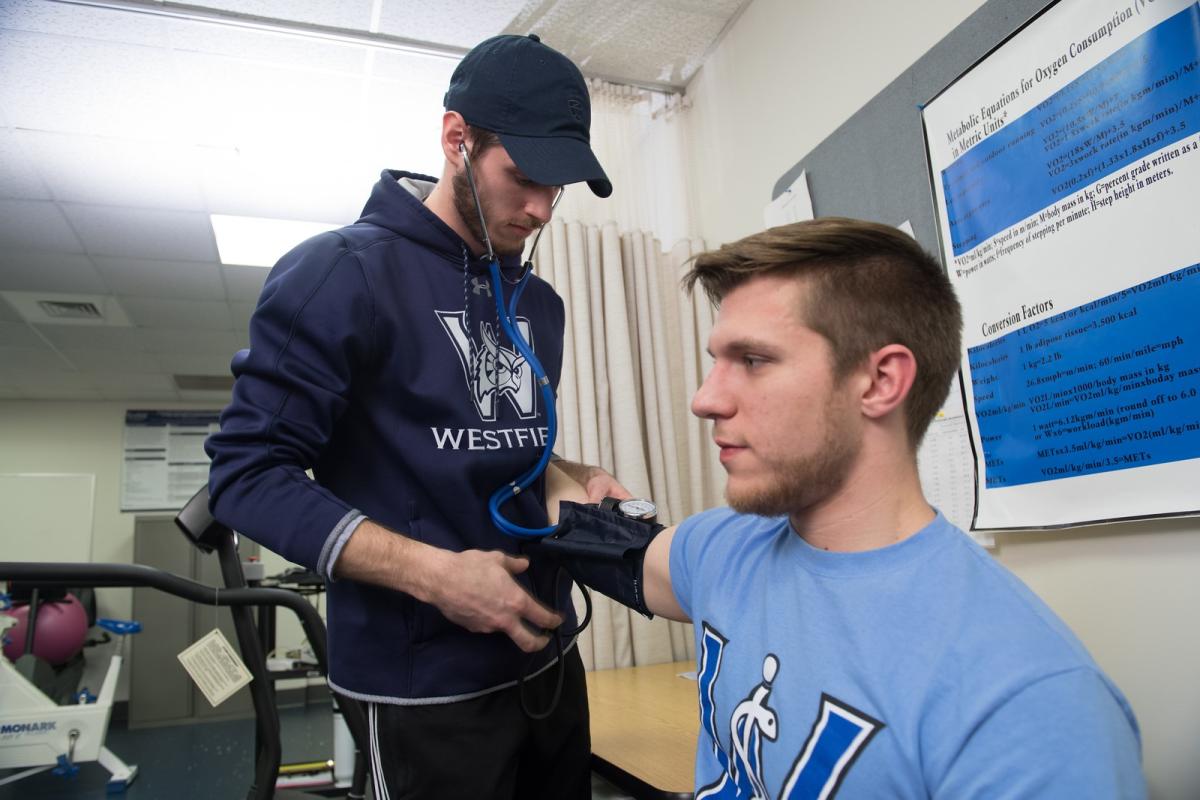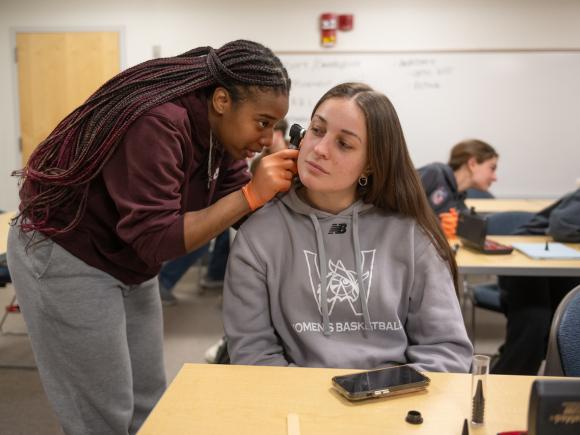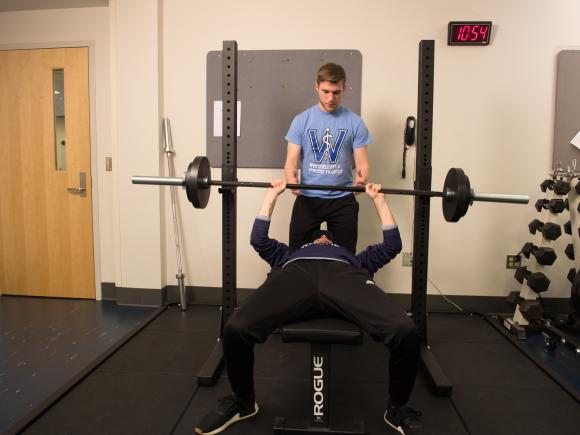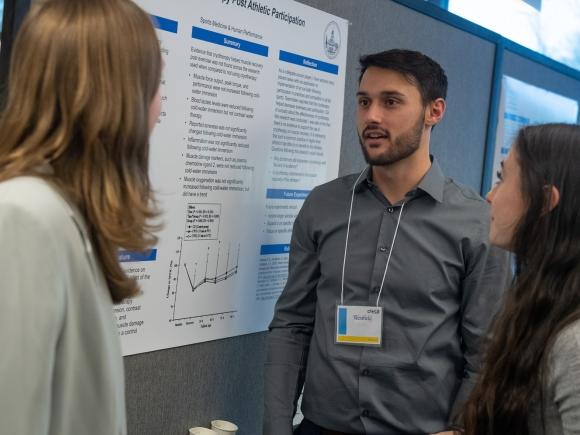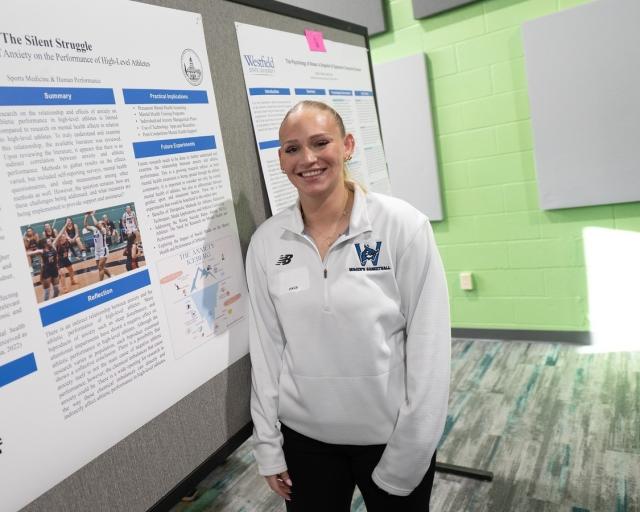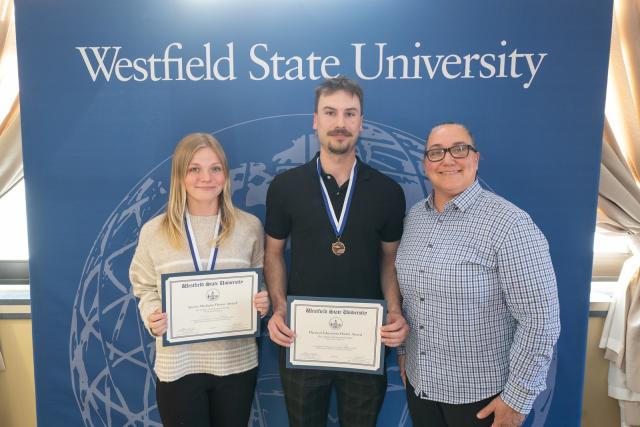The Preventative Health and Physical Activity concentration eqips students to become active changemakers in the health and well-being of individuals and communities. With a strong focus on leadership, collaboration, and equity, this program prepares students to understand and promote health through prevention, education, and advocacy.
Students can choose to complete this program in one of two routes:
- As a concentration within the Movement Science major
- As a minor added to another declared major
This flexible pathway allows students to tailor their academic experience to their professional goals.
What You'll Learn and Do:
At the heart of this concentration is the belief that preventative health and physical activity are powerful tools for positive change. Students explore:
- Preventative health interventions through evidence-based health behavior models
- Interprofessional collaboration and team-based problem solving
- Health equity and the social determinants of health
- The importance of health literacy - both personally and as community advocates
Through this integrated, real-world approach, students gain the knowledge, skills, and confidence to lead wellness initiatives, educate others, and support equitable access to health resources across diverse populations.
Policies and Progression:
All students in this concentration are expected to follow the policies and procedures outlined in the Sports Medicine and Human Performance (SMHP) Department Manual, including requirements for acheiving Intermediate and Advanced Standing.
Credentialing:
The Preventative Care and Physical Activity concentration is one of several engaging pathways within the Movement Science major - a flexible program designed for students who want to make a difference in individual and community health.
All Movement Science majors complete a 27-credit Movement Science Core that lays the foundation in human movement, health, and wellness. From there, students in the Preventative Health and Physical Activity concentration dive deeper wit
- 18 credits of specialized coursework focused on preventative care, behavior change, and health equity
- An additional 18 credits of advisor-approved coursework or completion of a related minor to build a focused area of expertise
This additional coursework is designed to support credentialing opportunities aligned with each student's career goals and interests.
Credentialing and Career Readiness:
Students in this concentration are encouraged to pursue nationally recognized certifications and licensures that boost their credentials and expand career opportunities. While completing the coursework does not guarantee certification, it lays the groundwork for success on a variety of professional exams.
Potential credentialing paths include (but are not limited to):
- Certified Health Education Specialist (CHES)
- Physical Activity in Public Health Specialist (PAPHS)
- Health, Food, and Consumer Science MTEL (Massachusetts Teacher Licensure in Health Education)
- Comprehensive School Physical Activity Programming (CSPAP)
Advisors work closely with students to tailor their academic and professional plans - helping them choose the best path for certification and licensure preparation.
Empower Health. Inspire Change. Lead Communities.
Graduates of the Preventative Health and Physical Activity Concentration are prepared for a wide variety of roles in both public and private sectors. Whether you're passionate about health education, wellness coaching, or health advocacy, this program opens the door to meaningful work across diverse professional settings.
You'll develop in-demand, transferable skills like leadership, teamwork, interprofessional communication, professionalism, and systems thinking - skills that are highly valued across industries and essential for creating real change in the world.
Career Settings May Include:
- Schools and Universities
- Hospitals and Clinical Practices
- Doctor's Offices and Healthcare Systems
- Corporate Wellness Programs
- Insurance Companies
- Government Agencies (Local, State, and Federal)
- Community and Nonprofit Organizations
According to national data, approximately 50% of graduates from similar programs are employed in healthcare or social assistance, and 20% work in government roles at the state or local level (https://www.nchec.org/).
Possible Job Titles May Include:
- Health Coach
- Patient Educator
- Employee Wellness Coordinator
- Health Advocacy Specialist
- Prevention Specialist
- Health Information Specialist
- Health Literacy Program Coordinator
- Community Health Program Director
- Physical Activity Program Manager
- Grant Writer
- Health Communications Consultant or Journalist
What You'll Do:
In these roles you take on responsibilities such as:
- Educating individuals and communities to improve health behaviors and promote healthier environments
- Creating and implementing prevention-focused programs that address community health challenges
- Advocating for health equity, access to safe physical activity spaces, and public health policy change
- Building partnerships across healthcare, education, and government sectors
- Helping patients and clients navigate healthcare systems, understand treatment plans, and access resources
- Designing wellness campaigns, incentive programs, and educational outreach tailored to diverse populations
Plan Your Path with Purpose:
Many of the certifications and credentials associated with this concentration - such as CEHS, PAPHS, or CSPAP - overlap in scope and responsibilities. That's why it's important to work closely with a program advisor and tailor your academic and career plan based on your unique strengths and interests.
